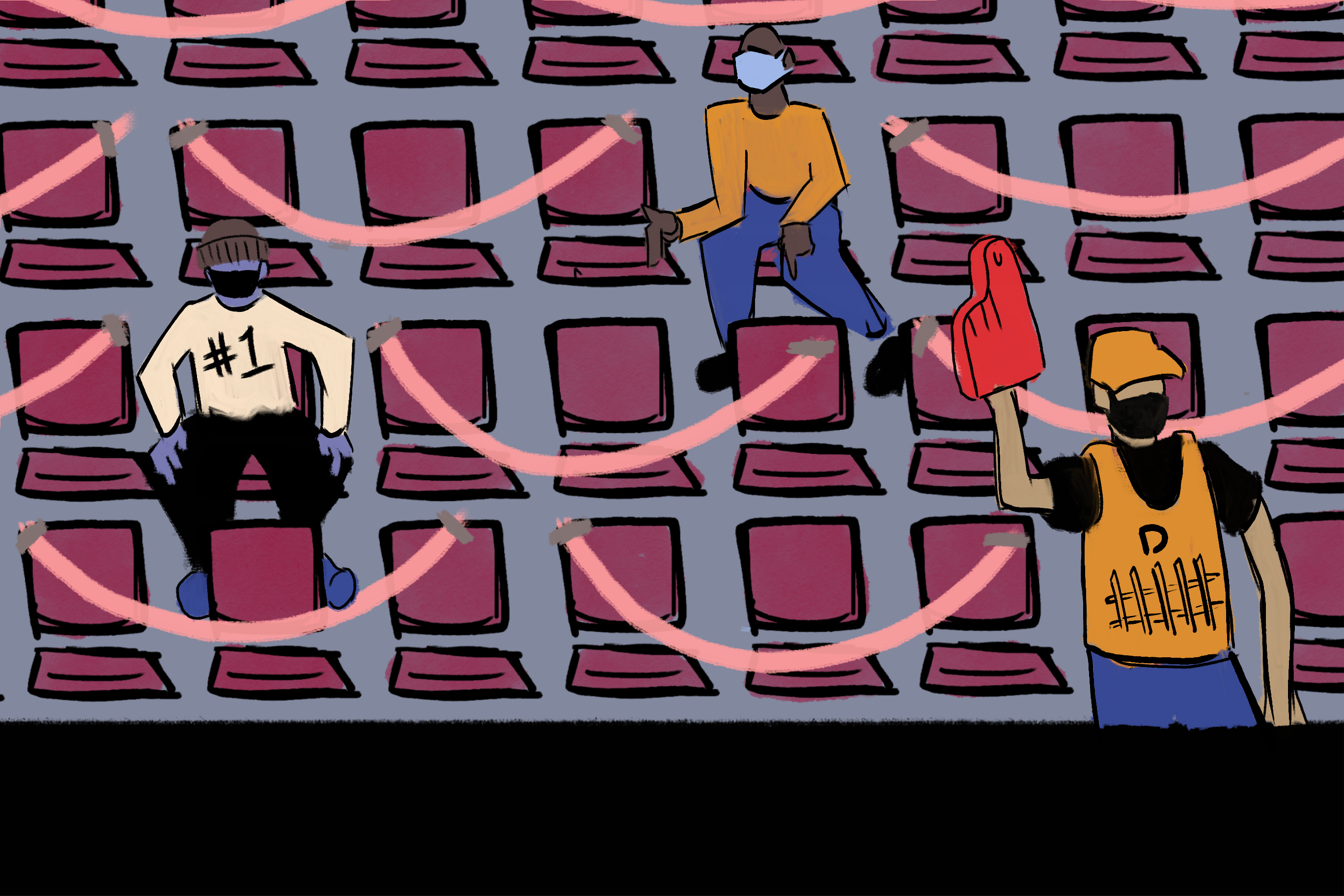Two friends bike 100 laps around Circuit Gilles Villeneuve to relieve food insecurity in Quebec
It’s 5 a.m. at Circuit Gilles Villeneuve, known as “The Circuit” for short, on Aug. 22 2020. While the sun has barely set and early morning dew is still floating on top of the grass, the sounds of spinning chains and gears shifting fill the air. Last year’s inaugural ride was not only a challenge, but also motivation to pursue it again.
While most are still asleep, university students Étienne Laprise and Gaspard Vié are about to accomplish what seems like the impossible: 100 laps around the circuit, totalling over 430 kilometres of biking in one day in a fundraiser they created called 100 tours par amour.
“I’m getting chills just talking about it,” said Laprise, one of the co-organizers of the fundraiser.
The fundraiser started by Vié is in support of people who have been affected by food insecurity from the COVID-19 pandemic. The goal is simple: the more money raised will mean more food on Quebecers’ tables this year.
Still in its infancy, the second annual fundraiser on Sept. 18 is hoping to not only surpass last year’s goal of supplying 21,000 meals to the less fortunate, but to also raise awareness regarding food security problems many people in the province have faced. According to Les Banques alimentaires du Québec more than 500,000 people suffer from hunger in Quebec each month. Each dollar raised from the fundraiser supplies three meals to people in need.
Last year, Vié stumbled on a fundraiser that partnered with Les Banques alimentaires du Québec to supply meals to Quebecers. After doing his own research, he realized that something had to be done to provide more food assistance to people in their time of need.
“I realized that there was a big demand from food banks,” Vié said. “Why not try and do something good for people who are struggling through the pandemic.”
Vié also saw this crisis as an opportunity to provide assistance to the food bank shortage.
“If people aren’t properly nourished, it’s easier for people to develop diseases and other illnesses. Without it you cannot properly succeed. You start off with the primary necessity for all people to succeed, and the primary necessity is to be able to get fed and to have water,” Vié said.
This isn’t the first serious physical challenge for the duo, considering they’ve competed in other physically demanding sports since high school. From skiing at tremendous speeds, to completing an Ironman at 18 years old, one thing was clear: for both Laprise and Vié, this endeavor differed from all others.
“We like to push ourselves together,” Laprise said. “The challenge is great, but with COVID going on it was a no-brainer to accomplish this for a good cause.”
Though the distance is quite a feat to cover in a single day, both Vié and Laprise have found that last year’s success was
“It’s hard on the legs, I won’t deny that. But with people’s support it makes things easier,” Vié said.
From last year’s experience the beginning is exciting, however when fatigue sets in at the halfway mark it becomes a mental game, according to Laprise.
“At some point you lose count, your body gets tired and you’re just going to follow the kilometers on your speedometer,” Laprise said.
Though most would find biking for 13 hours daunting, Vié knew he couldn’t accomplish this alone. That’s when Vié called Laprise to invite him on this journey, and Laprise was on board from the beginning.
“He called me and asked if I wanted to get in. We love doing those challenges,” Laprise said.
With the workload of being full-time students and having jobs, things were a bit harder to manage. However, for Vié and Laprise not only staying organized is key, but their passion for the cause motivated them to pursue this fundraiser into their second year.
“At the beginning I had no idea what I was doing, I was diving into the unknown,” Vié said. “It’s hours I don’t count because I’m passionate about the project that I’m doing.”
In their second year, they have acquired more prominent sponsors who have donated money to the fundraiser and have upped last year’s goal of $3,000 to $10,000. If achieved, their goal would provide 30,000 meals to those most impacted from COVID-19.
“We doubled our goal last year and made a total of $7,000. I’m looking forward to seeing if we can get to this goal,” Vié said.
Les Banques alimentaire du Québec claims that 1.9 million food assistance requests are made monthly to their food banks as of 2019. Since the beginning of COVID-19, that number has increased by 30 per cent.
As for the future, Vié plans to have more people on board to further grow the fundraiser.
“I would love to get to a point where I can invite more people to come and bike for the cause,” Vié said. “We’re currently still at the regional level, but as for a long-term plan, I would love to grow les 100 tours par amours into a known provincial fundraiser to spread the message.”
Photograph by Samuel Lemieux
